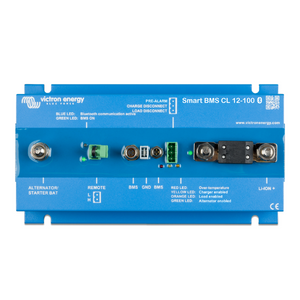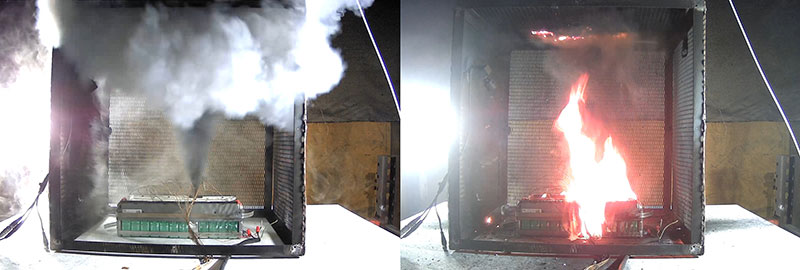Self-Build Lithium Batteries
As lithium-based battery technology grows in popularity there has been an increasing trend of people creating their own lithium battery systems. This has been hailed as a cheaper way of benefiting from lithium technology thanks to sites selling individual lithium cells for low cost and videos on social media showing how to create your own lithium battery. Today we will highlight some of the reasons you may want to re-think this "cheaper" option and the dangers that you need to be aware of.
Lithium Cells

The key component of a lithium battery is the cells it is comprised of and it is, therefore, important to know what can go wrong here. Problems can occur if your cells don't uniformly emit power which can easily happen if they're not tested to a high standard before being assembled. Most DIY builders will not have the appropriate equipment or knowledge of lithium batteries to carry out such rigorous testing. Many videos on social media may claim that you can test the cells using a standard multimeter, however, this will not tell you the level of discharge of the cell which could cause problems. Additionally, some lithium cells are B or C grade which will mean they are not as high a quality as cells used within the lithium batteries we stock, which are grade A.
Busbars

Making sure your batteries can provide an even discharge is vital and some busbar recommendations may simply be sub-par for your requirements. Unfortunately, because your battery won't be tested with full loads until installed it would be unlikely this would be noticed until you were underway which can cause battery management problems. Manufactured batteries are tested to make sure their busbars can handle the loads they expect to see and this is provided for the customer's reference on the battery's specification (i.e. max. discharge current).
BMS (Battery Management Systems)

These are crucial for lithium batteries and if you have thought about making your own you have likely heard this term. Battery-Management Systems do just what they say and monitor a range of parameters to protect your battery and manage the attached loads and charging sources. A BMS can monitor voltage, state of charge, resistance, loads, temperature & current, when any one of these is not right the system will disconnect the battery from the electrical system. If it is therefore important that not only is the BMS used of high quality but that it can work with the configuration you have created.
Without a good BMS managing the system you may not only have performance issues but may also be at a greater risk of thermal run away. All of the batteries we stock are manufactured either with an internal BMS or are designed to work with a separate external BMS.
Conclusion
So can you make your own lithium battery? Well yes... but should you? Given the potential risk of fire if not assembled and tested correctly using high-quality cells, we think the risks outweigh the benefits. Lithium fires can be extremely difficult to get under control, resulting in significant damage or worse.

Image from ioppublishing.org/ © Institute of Physics (the “Institute”) and IOP Publishing Limited 2019
The manufacturers of the batteries we stock employ rigorous quality assurance and carry out numerous functionality and safety tests to make sure their batteries are safe and fit for purpose, so you can benefit from the power of lithium whilst being confident in their safety and performance.
